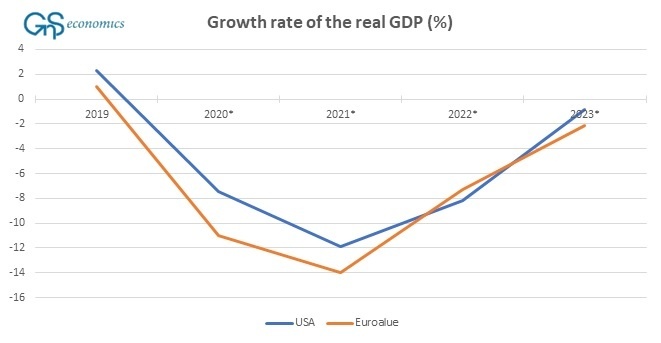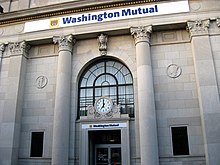Possibilities are, you've seen commercials boasting the benefits of a reverse home mortgage: "Let your home pay you a regular monthly dream retirement income!" Sounds fantastic, best? These claims make a reverse home loan sound almost too great to be real for senior property owners. But are they? Let's take a more detailed look. A reverse home loan is a kind of loan that uses your home equity to provide the funds for the loan itself.
It's generally a chance for senior citizens to tap into the equity they've constructed up over many years of paying their home loan and turn it into a loan for themselves. A reverse home loan works like a routine home mortgage because you have to apply and get approved for it by a lender.
However with a reverse mortgage, you do not make payments on your home's principal like you would with a routine mortgageyou take payments from the equity you have actually built. You see, the bank is providing you back the cash you've already paid on your house but charging you interest at the exact same time.

Seems easy enough, right? However here comes the cringeworthy truth: If you die prior to you've sold your house, those you leave are stuck to two choices. They can either settle the full reverse home mortgage and all the interest that's piled up throughout the years, or surrender your house to the bank.
Like other kinds of home mortgages, there are various types of reverse home mortgages. While they all essentially work the exact same way, there are three main ones to understand about: The most typical reverse home loan is the House Equity Conversion Mortgage (HECM). HECMs were produced in 1988 to help older Americans make ends fulfill by permitting them to use the equity of their homes without needing to leave.
Some Known Questions About Which Of The Following Is Not True About Reverse Annuity Mortgages?.
Some folks will utilize it to pay for expenses, trips, house renovations and even to pay off the staying amount on their regular mortgagewhich is nuts! And the Discover more here consequences can be substantial. HECM loans are kept a tight leash by the Federal Real Estate Administration (FHA.) They do not want you to default on your mortgage, so because of that, you will not get approved for a reverse home mortgage if your home deserves more than a particular amount.1 And if you do receive an HECM, you'll pay a large home loan insurance premium that protects the loan provider (not you) versus any losses - why do banks sell mortgages to fannie mae.
They're offered up from privately owned or run companies. And due to the fact that they're not managed or insured by the federal government, they can draw homeowners in with promises of higher loan amountsbut with the catch of much greater rates of interest than those federally insured reverse home loans. They'll even offer reverse mortgages that permit house owners to borrow more of their equity or include homes that go beyond the federal optimum quantity.
A single-purpose reverse mortgage is offered by government firms at the state and local level, and by nonprofit groups too. It's a type of reverse home mortgage that puts guidelines and constraints on how you can utilize the money from the loan. (So you can't invest it on an expensive holiday!) Typically, single-purpose reverse home loans can just be used to make real estate tax payments or pay for home repairs.
The important things to bear in mind is that the lending institution has to approve how the cash will be used before the loan is offered the OKAY. These loans aren't federally insured either, so lenders do not need to charge mortgage insurance premiums. But given that the cash from a single-purpose reverse mortgage needs to be utilized in a particular method, they're normally much smaller sized in their amount than HECM loans or exclusive reverse home loans.
Own a paid-off (or at least significantly paid-down) house. Have this home as your main house. Owe absolutely no federal debts. Have the cash flow to continue paying property taxes, HOA charges, insurance, maintenance and other home expenditures. And it's not simply you that has to qualifyyour home likewise has to satisfy particular requirements.
The Ultimate Guide To How Much Do Mortgages Cost Per Month
The HECM program likewise enables reverse home mortgages on condominiums authorized by the Department of Housing and Urban Advancement. Before you go and sign the papers on a reverse home loan, have a look at these 4 significant downsides: You may be thinking of securing a reverse home mortgage because you feel positive loaning versus your house.
Let's simplify like this: Envision having $100 in the bank, however when you go to withdraw that $100 in money, the bank only provides you $60and they charge you interest on that $60 from the $40 they keep. If you would not take that "deal" from the bank, why in the world would you want to do it with your house you've spent decades http://judahhrxd462.theglensecret.com/the-only-guide-for-what-kind-of-people-default-on-mortgages paying a home mortgage on? However that's precisely what a reverse home loan does.
Why? Because there are fees to pay, which leads us to our next point. Reverse home mortgages are loaded with extra costs. And the majority of debtors opt to pay these costs with the loan they will getinstead of paying them out of pocket. The thing is, this costs you more in the long run! Lenders can charge up to 2% of a home's value in an paid up front.
So on a $200,000 house, that's a $1,000 yearly expense after you've paid $4,000 upfront of course!$14 on a reverse home mortgage are like those for a routine home loan and include things like house appraisals, credit checks and processing costs. So prior to you know it, you've sucked out thousands from your reverse home loan before you even see the very first penny! And because a reverse home loan is just letting you tap into a portion the worth of your house anyway, what occurs as soon as you reach that limit? The cash stops.
So the quantity of cash you owe goes up every year, monthly and every day up until the loan is settled. The advertisers promoting reverse mortgages love to spin the old line: "You will never ever owe more than your home is worth!" But that's not exactly real since of those high rates of interest.
The 9-Second Trick For What Are The Different Types Of Mortgages
Let's say you live until you're 87. When you die, your estate owes $338,635 on your $200,000 house. So instead of having a paid-for house to hand down to your loved ones after you're gone, they'll be stuck with a $238,635 bill. Chances are they'll need to offer the house in order to settle the loan's Get more information balance with the bank if they can't afford to pay it.
If you're investing more than 25% of your earnings on taxes, HOA costs, and household expenses, that suggests you're house bad. Connect to among our Backed Regional Companies and they'll assist you navigate your choices. If a reverse home mortgage lending institution informs you, "You will not lose your home," they're not being straight with you.
Believe about the factors you were thinking about getting a reverse mortgage in the very first location: Your spending plan is too tight, you can't manage your daily expenses, and you do not have anywhere else to turn for some additional money. All of a sudden, you've drawn that last reverse mortgage payment, and then the next tax costs happens.
